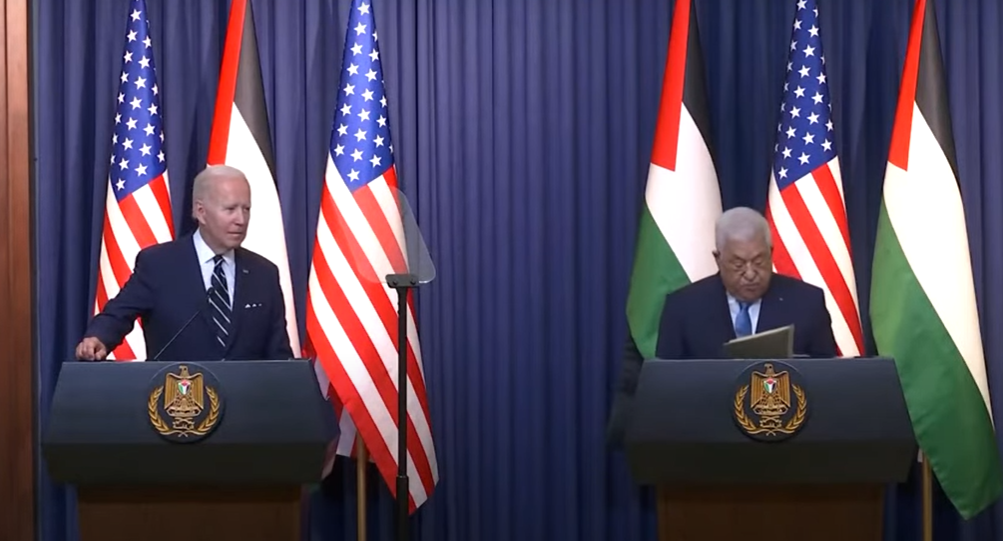From the outset of the Gaza conflict, the United States and Israel have engaged in discussions about what comes “the day after” the war, focusing on the question of governance in the Gaza Strip.
The U.S. has taken a clear stance, suggesting that the Palestinian Authority (PA), led by Mahmoud Abbas, should extend its control to the Gaza Strip in addition to its rule over Judea and Samaria.
The U.S. aims to make the PA’s control over the Gaza Strip and Judea and Samaria a preliminary step towards a future two-state solution and the establishment of an independent Palestinian state.
Secretary of State Tony Blinken emphasized the necessity of a unified PA government in both the Gaza Strip and the West Bank, signaling the end of Hamas’ rule in Gaza.
Blinken further highlighted Israel’s commitment to not occupy the Gaza Strip permanently, recognizing the need for a transition period after the war until Palestinian governance is established.
While Israel has not yet finalized its position on the entity to rule Gaza post-Hamas, Prime Minister Netanyahu has stressed Israel’s ultimate security responsibility in the region to protect Israel and its border settlements.
Israel is developing a new security strategy for the Gaza Strip, considering a 3 km buffer zone along the border to ensure the safety of residents in border areas once military objectives are met.
Currently, Israel is holding a firm stance against the American demand for an immediate humanitarian ceasefire, linking it to the release of Israeli hostages held by Hamas.
Despite this stance, political officials in Jerusalem anticipate a compromise to emerge eventually, as Israel seeks to prolong its military operations and emphasizes the importance of progress in hostage release talks.
In the end, Israel recognizes the significance of President Biden’s support, particularly in its broader struggle against the Iranian-backed axis of evil.
Therefore, while showing flexibility, Israel hopes to secure American cooperation in the release of its abducted citizens and soldiers.
The Biden administration’s concern about the Gaza conflict centers around various interests:
- Achieving a humanitarian ceasefire in Gaza, paving the way for a comprehensive ceasefire.
- Facilitating the delivery of humanitarian aid through the Rafah crossing.
- Prioritizing the release of abductees, including American citizens.
- Preserving regional stability in the Middle East and preventing attacks on U.S. military bases in Iraq and Syria.
- Mitigating international criticism of the Biden administration and maintaining its political standing within the U.S.
- Establishing an alternative Palestinian governing body to replace Hamas in the Gaza Strip, in collaboration with Israel, the PA, and Arab nations.
The Biden administration is concerned that Israel may lack a well-defined military strategy for toppling Hamas and planning for the post-conflict phase.
They aim to share their experience from the Iraq War post-9/11 and prevent Israel from making mistakes that could inadvertently strengthen Hamas during the Gaza Strip conflict.




